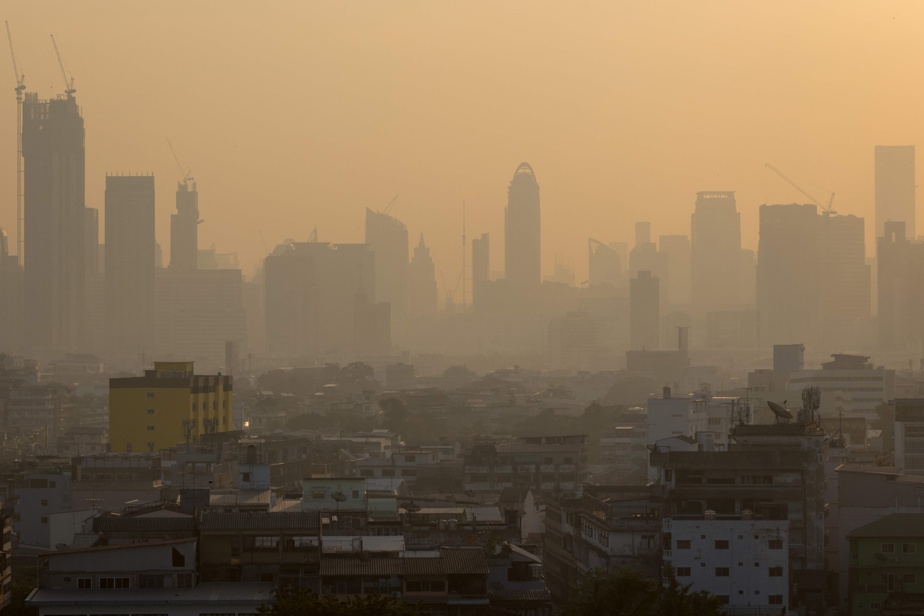(Bangkok) On his hospital bed in Bangkok, an elderly patient connected to a tangle of tubes struggles to breathe. Thailand is facing a “huge rise” in respiratory problems, caused by a spike in air pollution.
The patient’s wife holds his hand and caresses his face, while a nurse in a blue coat applies a stethoscope to his chest. He struggles with every breath.
Some 2.4 million people in Thailand have needed medical treatment for problems related to air pollution since the start of the year, including 200,000 people just this week, according to health authorities.
Bangkok and the northern city of Chiang Mai were among the world’s 10 most polluted cities on Friday, according to air monitoring firm IQAir.
Piamlarp Sangsayunh, a respiratory disease specialist at Thailand’s Central Thorax Institute, says she has seen a “huge increase in the number of patients since February,” who “usually present with respiratory problems like cough, sore throat” or irritated eyes.
The elderly are the most sensitive to air pollution, which can aggravate diseases already present and force them to be put on oxygen, explains the expert.
According to her, those who work outdoors – like Bangkok’s vast army of street vendors and motorcycle taxis – are “on the front line”.
Uraiwan Chantana, who sells fishballs in Bangkok’s central shopping district, says inhaling the toxic air every day eventually left her exhausted. But she cannot close her kiosk, having no other source of income.
“I feel a burning pain in my nose and cough regularly,” she says. “I gasp when I go up stairs, which I didn’t have before.”
The World Health Organization (WHO) representative in Thailand, Jos Vandelaer, points out that air pollution is not only a public health problem, but also affects the productivity of the economy.
“When people are sick, they can’t go to work, there is a reduction in economic activity,” he sums up.
The cost of air pollution in Thailand in 2019 was US$63.1 billion, or 11% of GDP, according to Witsanu Attavanich, an environmental economist at Kasetsart University in Bangkok.
One of the main threats is PM2.5 fine particles which can penetrate deep into the lungs and even pass through the blood.
According to IQAir, the average PM2.5 concentration in Thailand exceeded the standard set by the WHO by 3.6 times in 2022.
“In the long term, there is more risk of respiratory infection. If people have asthma it can get worse, people can develop chronic lung disease, even cancer,” Vandelaer says.
“What is less known is that PM2.5 can cause cardiovascular disease, increase the risk of stroke or heart attack,” he adds.
Air pollution is a contributing factor in about 31,000 deaths in 2019 in Thailand, according to WHO data.
Smoke from forest fires, that of burning farmers as well as vehicle emissions and those of heavy industry are among the main causes of air pollution in the kingdom of 70 million inhabitants.
The El Nino climate phenomenon, with its extreme temperatures, is also exacerbating the problem in South Asia, according to experts.
As the May 14 elections approach, the issue is being debated in the election campaign, with the current government accused of doing little.
“You have to solve the problem at the root, as a doctor I only deal with the consequences”, says Dr. Piamlarp.

